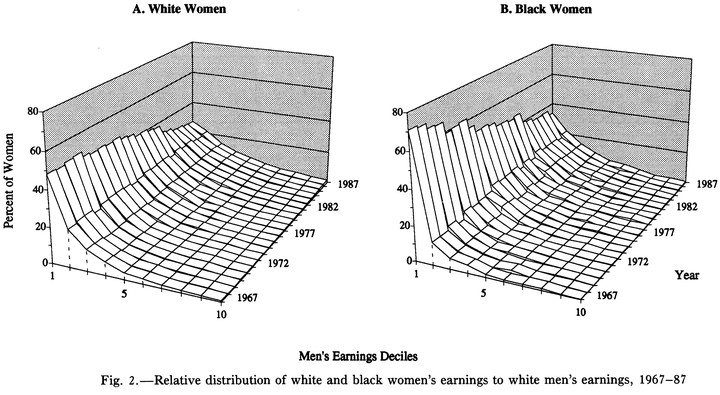
Abstract
The recent closing of the gender wage gap is often attributed to increases in women’s human capital. This explanation neglects the effect of growing inequality in men’s earnings. The authors develop a decomposition that allows them to test how distributional changes in men’s and women’s earnings combine to yield changes in women’s economic status. Using Current Population Survey data from 1967 to 1987, the authors find that the striking polarization in white men’s earnings has played a critical role in generating women’s relative economic gains, though more for white women than for black women. For both groups, the results predict a future slowing of women’s relative progress.
Type
Publication
American Journal Sociology